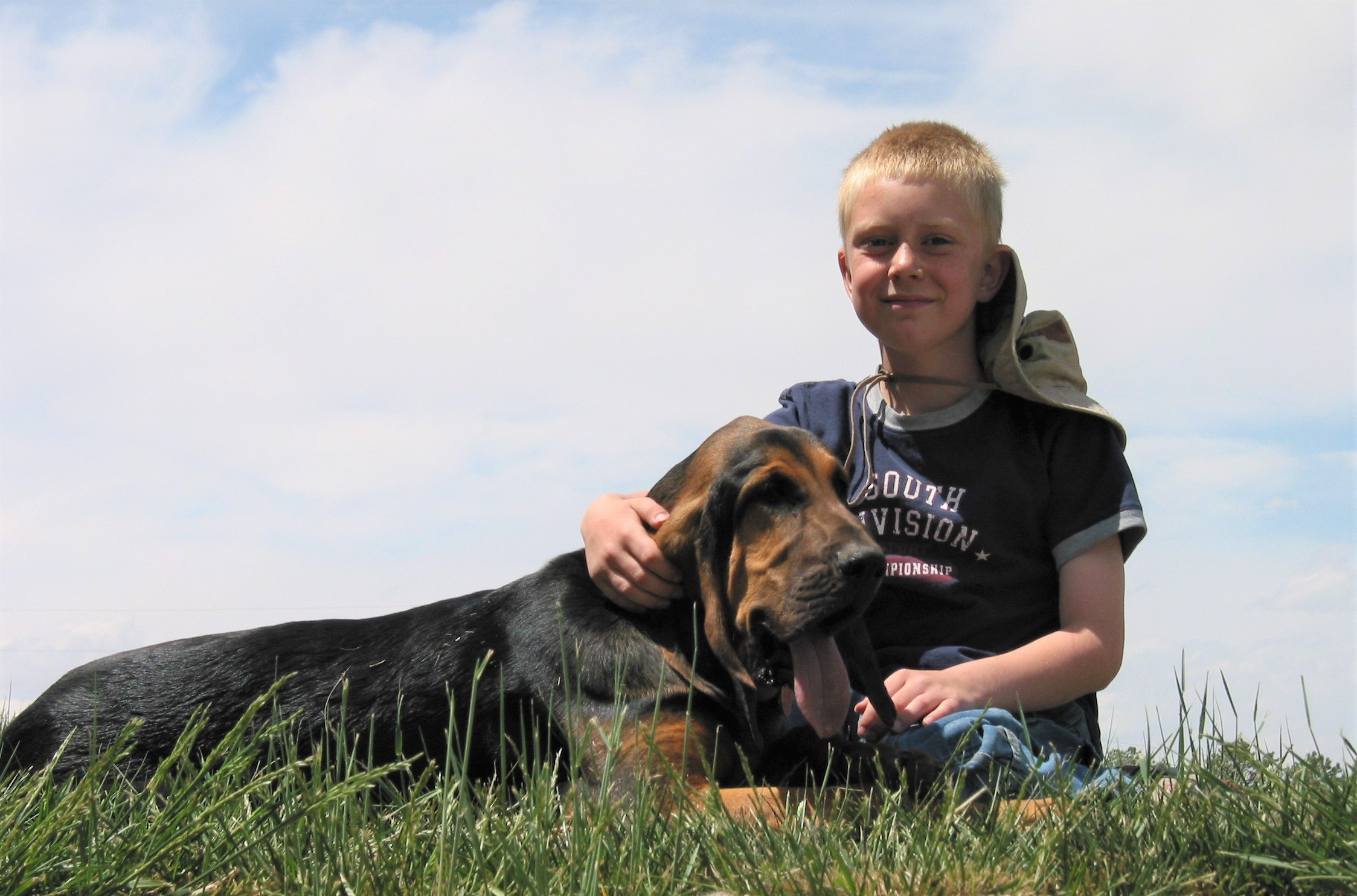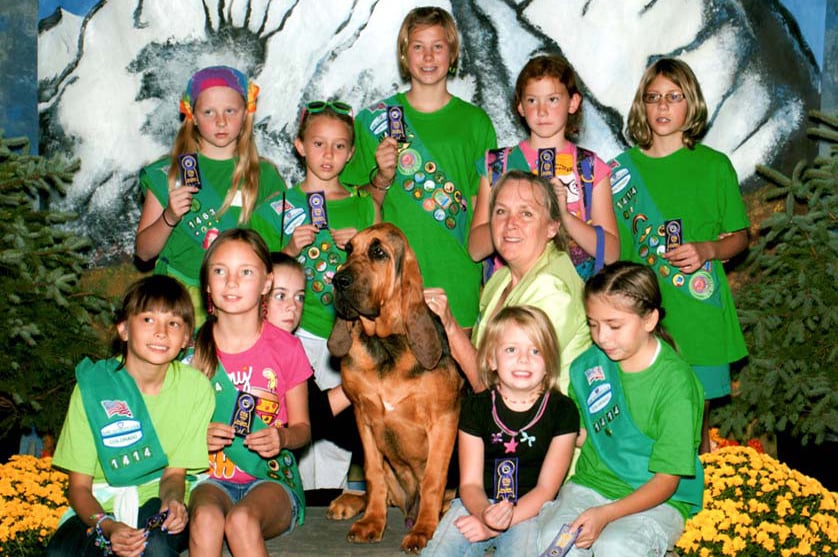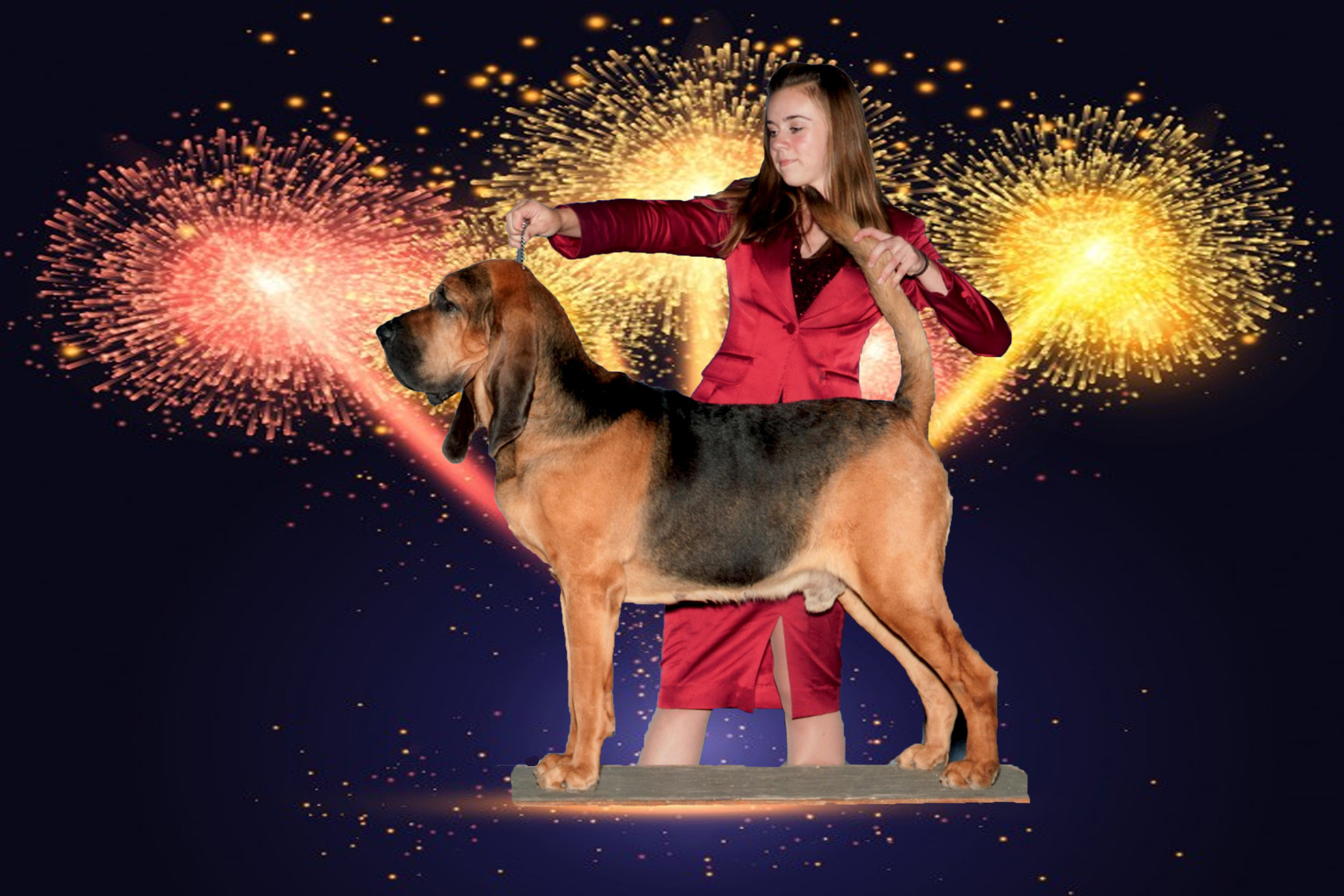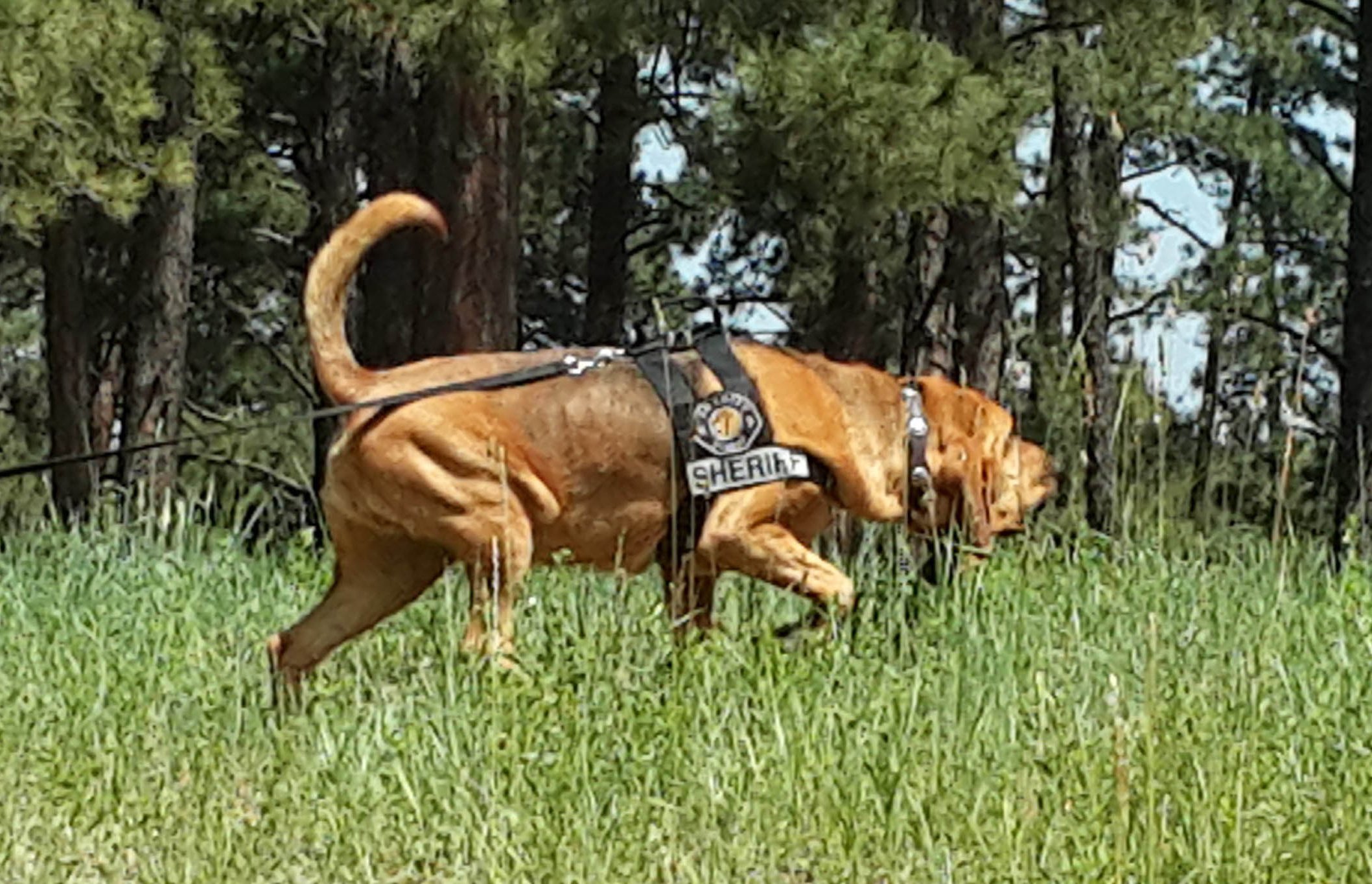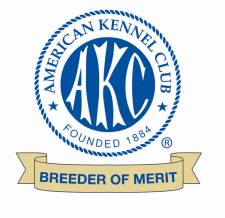Greetings from David, Marlene and Karissa Groves, and what we call Buffalo Groves Bloodhound Ranch!
We are here to help you learn about Bloodhounds - Bloodhound History, Bloodhound Health, Bloodhound Standards, Bloodhound Puppies, and so much more!
We aren't the biggest Bloodhound Breeder (or Buffalo Ranch) and that's okay, we are Quality over quantity, and love educating & advocating for Purebred Bloodhounds!
EXCITING NEWS - BLOODHOUND PUPPIES COMING - DEC 19 2024
 EASY LINK TO OUR BLOODHOUND PUPPY PAGE
EASY LINK TO OUR BLOODHOUND PUPPY PAGE
Bloodhound General Care Information
CLEAN UP: If you have a bloodhound you need to be willing to keep drool/clean up towels nearby and use them. Wipe their wet ears, dewlap, etc. We also wipe their paws when it's rainy,-snowy-muddy. It sure helps them not be so dirty and stinky.
POOP: Bloodhounds don't like to poop where they live so they go farther out to do their business. You can train them as a pup where to go (taking them on a leash). Pick up their poop regularly, it helps keep things clean and you can monitor stools.
EARS: Bloodhounds drag their ears, dunk them in water, ears get dirty and sometimes infected and/or stinky. Get non-alcohol, unscented baby wipes and use them to wipe out your dogs ears at least weekly. Dogs love it as it feels like an ear massage.
EYES: Their eyes may get red and/or watery from wind/dirt. It's okay to wipe the corners or to use eye drops. Do watch out for Entropion (eye lids rolling in scratching the eye) or Extropion (extreme puckering our of the lower lids). Both require a vet.
NAILS: Please be responsible to trim your dogs nails regularly (at least monthly). We like to use a dremmel and we train them young to be up on a grooming table and with treats. If you are uncertain how to do this ask your breeder or groomer or vet.
CHIP, VET, SHOTS: If you get your pup or dog from responsible breeder it is likely to be microchipped, but if it is not, get it microchipped. Get a good vet to for your dogs shots and general medical needs.
Some General Bloodhounds Needs
We firmly believe that bloodhounds, like many other large breed dogs, really do have some basic needs to be as happy, healthy and well behaved as possible.
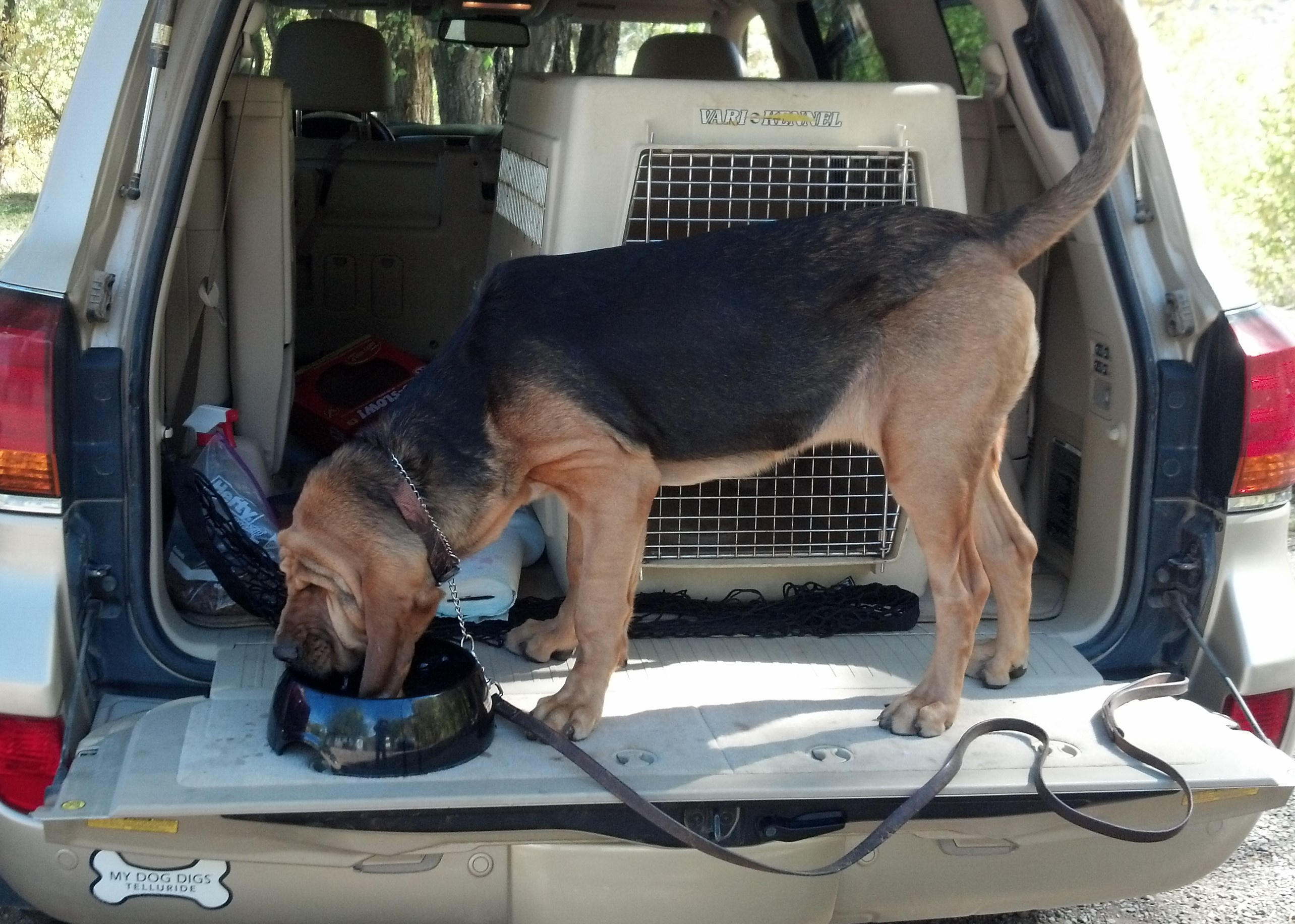
THINK TODDLER:
Getting a puppy or an adult dog, think toddler. Put trash, cleaning stuff, breakable items & food away and watch wires. Give appropriate toys, and do not leave them unattended! Crates can be very helpful as can keeping a leash on them.
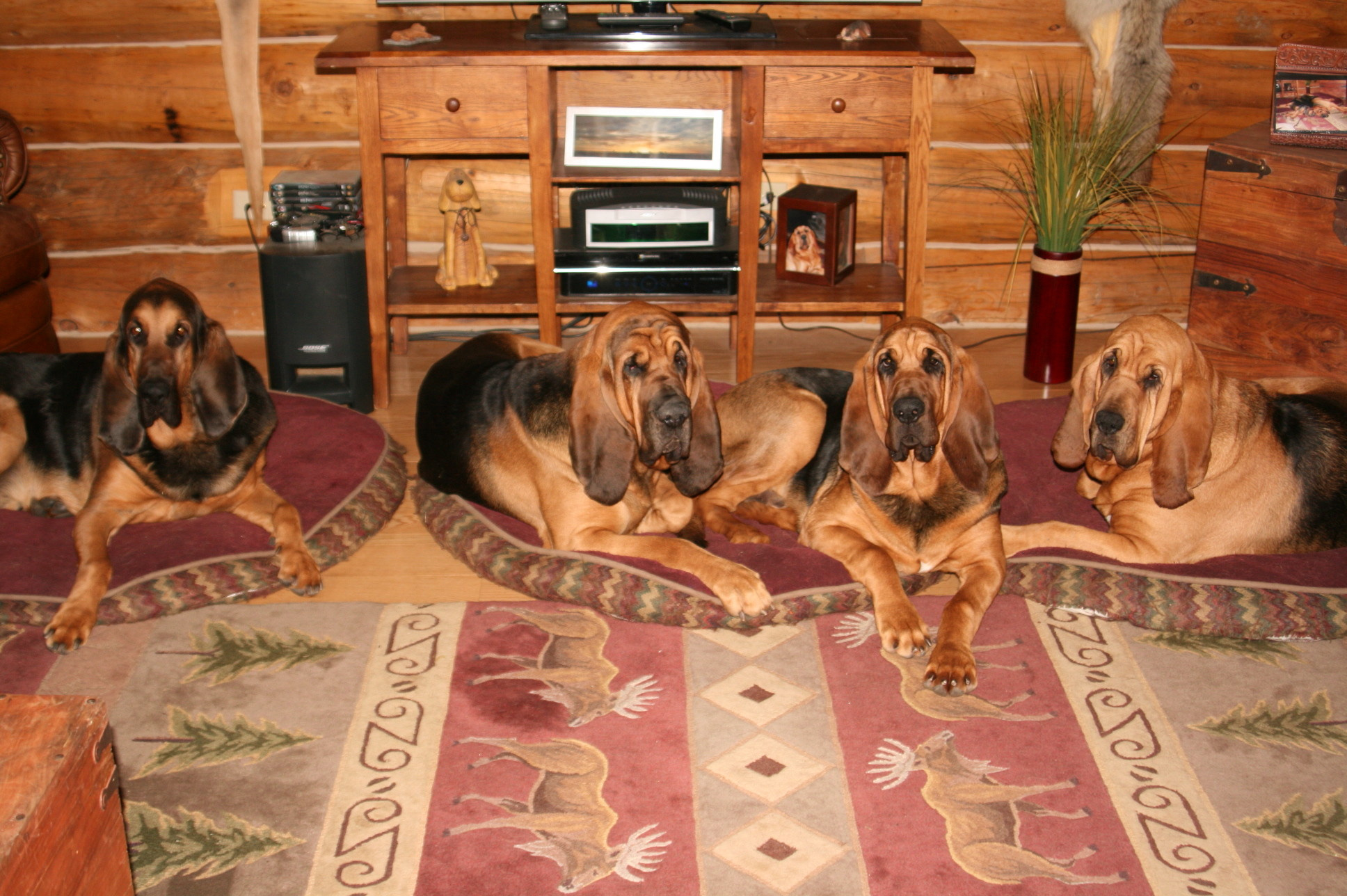
HOME ENVIRONMENT:
Their home environment plays a big factor. We recommend puppies are crate trained, which will help with potty training but it will also provide a safe place for your puppy when you are not right there to watch & supervise it.

OUTSIDE ENVIRONMENT:
Bloodhounds do best in a large, properly fenced yard. Put your hoses & garden stuff away or they will be play toys and chewed up.. Have proper shelter (dog house) to escape the cold, and if you don't have shade trees, put up a shade tarp.
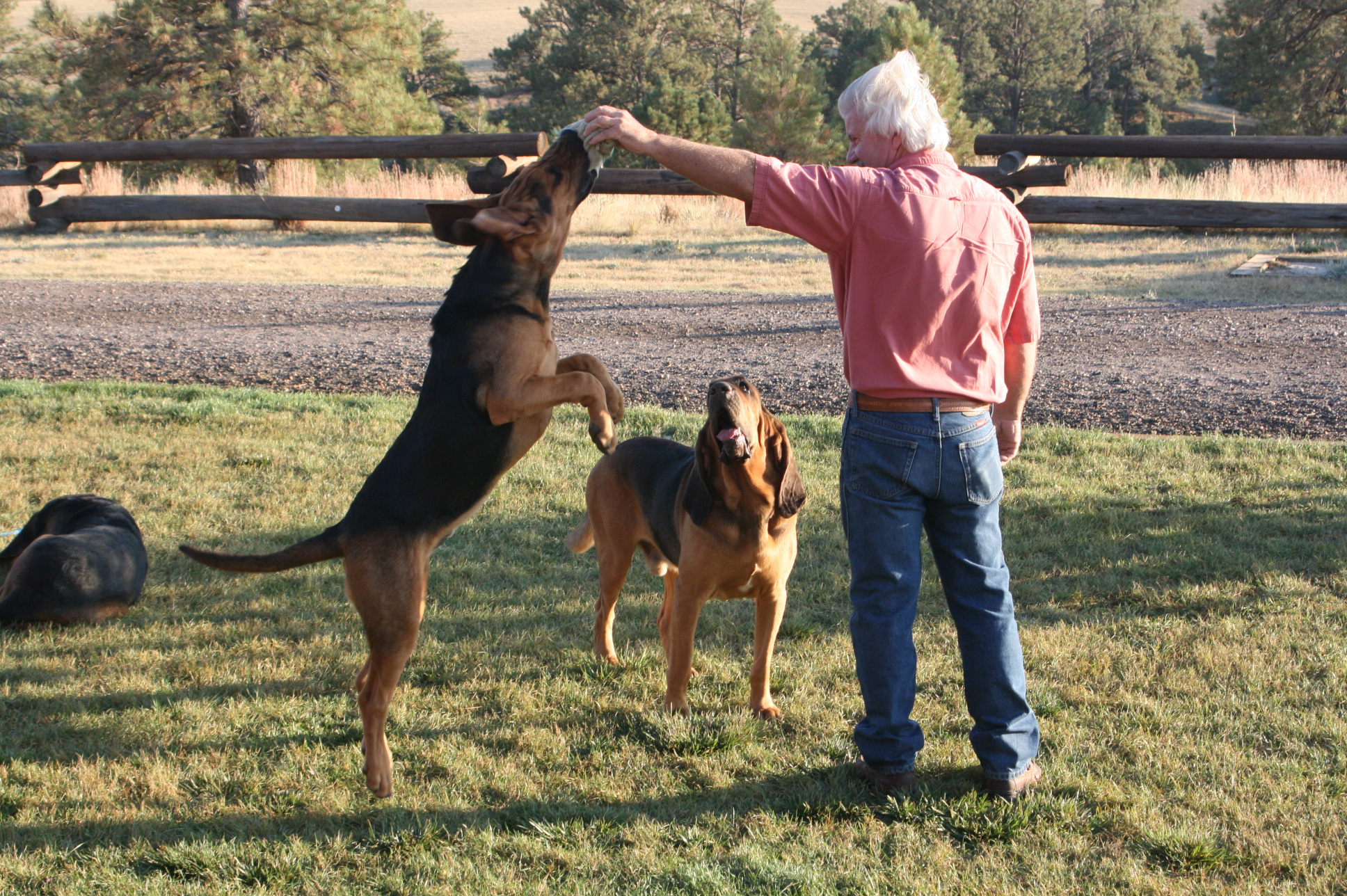
PACK LEADER:
One of the biggest things with having a bloodhound is being their pack leader. They are cute & squishy, but you need to be the boss (in charge) or you will not have their respect and your hound may be more troublesome.

BASIC TRAINING:
At a minimum, please train your bloodhound to Sit, Stay, and Come. We also recommend Off (as they like to jump), and use Down for lay down. Puppy kindergarden or beginning obedience classes will help your dog be a better citizen.
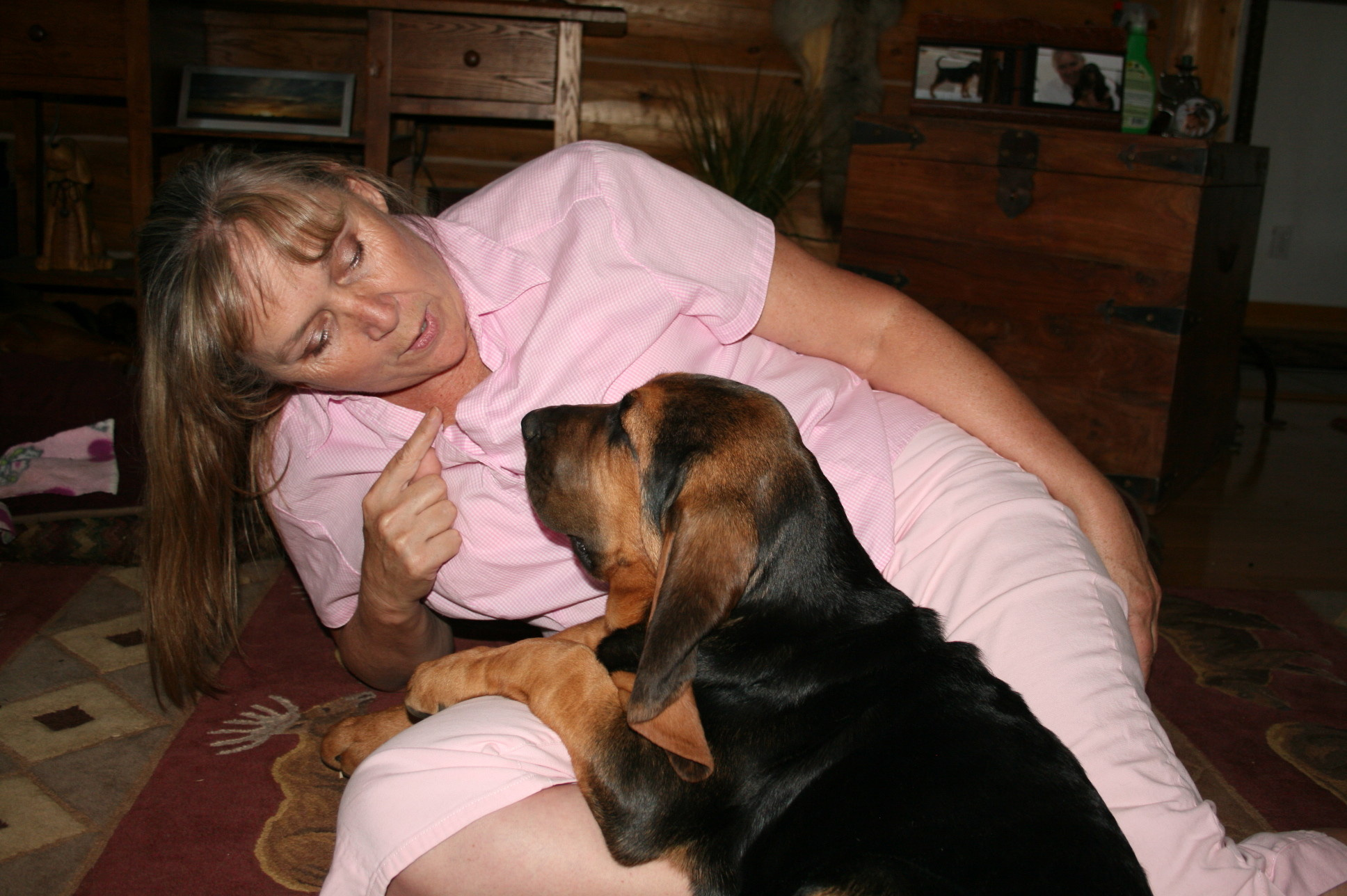
TIME & ATTENTION:
This is huge - bloodhounds don't thrive without good human time & attention. Bloodhounds create deep soulful connections and they want to be with their people. If you don't have the time, don't get a bloodhound (especially a puppy).

FEEDING TIPS:
Feed quality kibble (not grain free, it causes heart troubles). Puppy food only until 6 months. You can add yogurt, cottage cheese or canned food to kibble. (Some wet kibble, we don't as is makes them eat faster.) We feed in raised bowls.

WATER:
All dogs need water but you will be amazed at the amount of water bloodhounds drink and you should be prepared to watch them dunk their heads in their water bucket. They drool & back wash, so please clean their water bowl daily!
Some General Bloodhound Traits
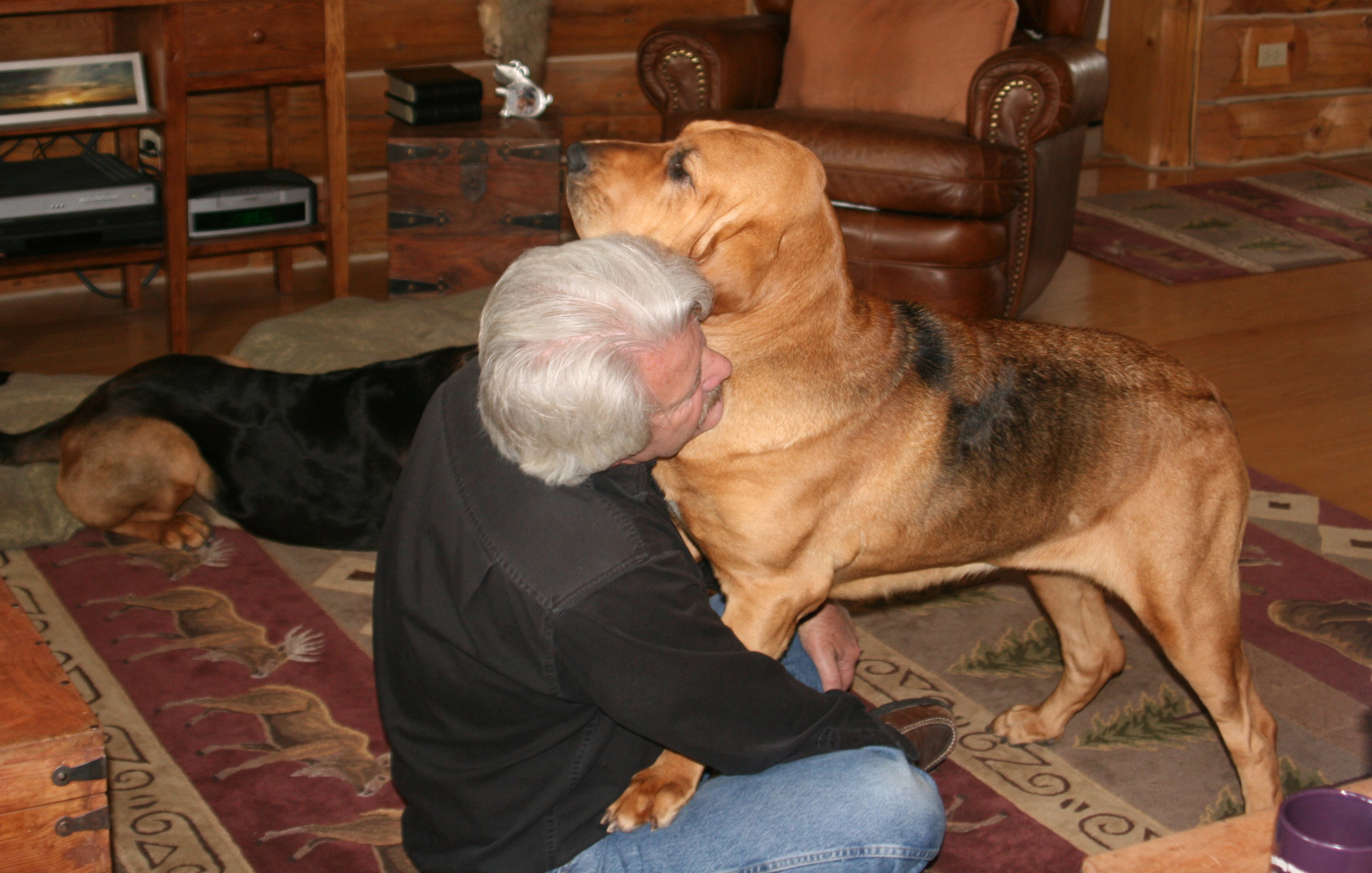
CUDDLY & AFFECTIONATE:
Most bloodhounds are cuddly and affectionate. You will hold and squish them as a puppy, but as they grow, they will still think they can get in your lap, Sometimes they can be demanding for attention and will even paw at you.
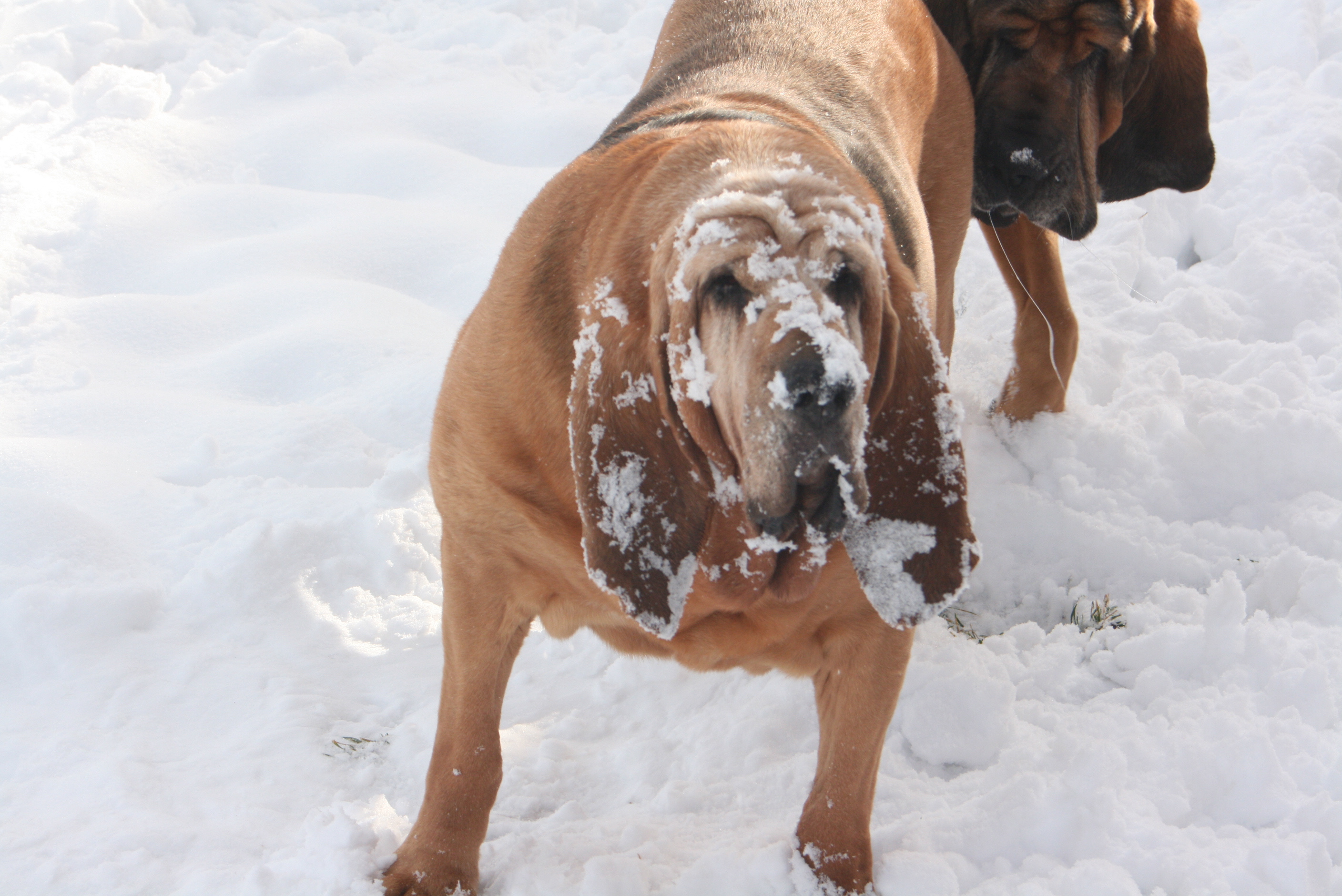
MESSY -vs- CLEAN:
Bloodhounds drool & get messy, but you can minimize that with leaving their food & water outside. Use a drool & clean up towel and stop your dog and do a "clean up" with a towel each time you let your dog in. We teach "clean up".
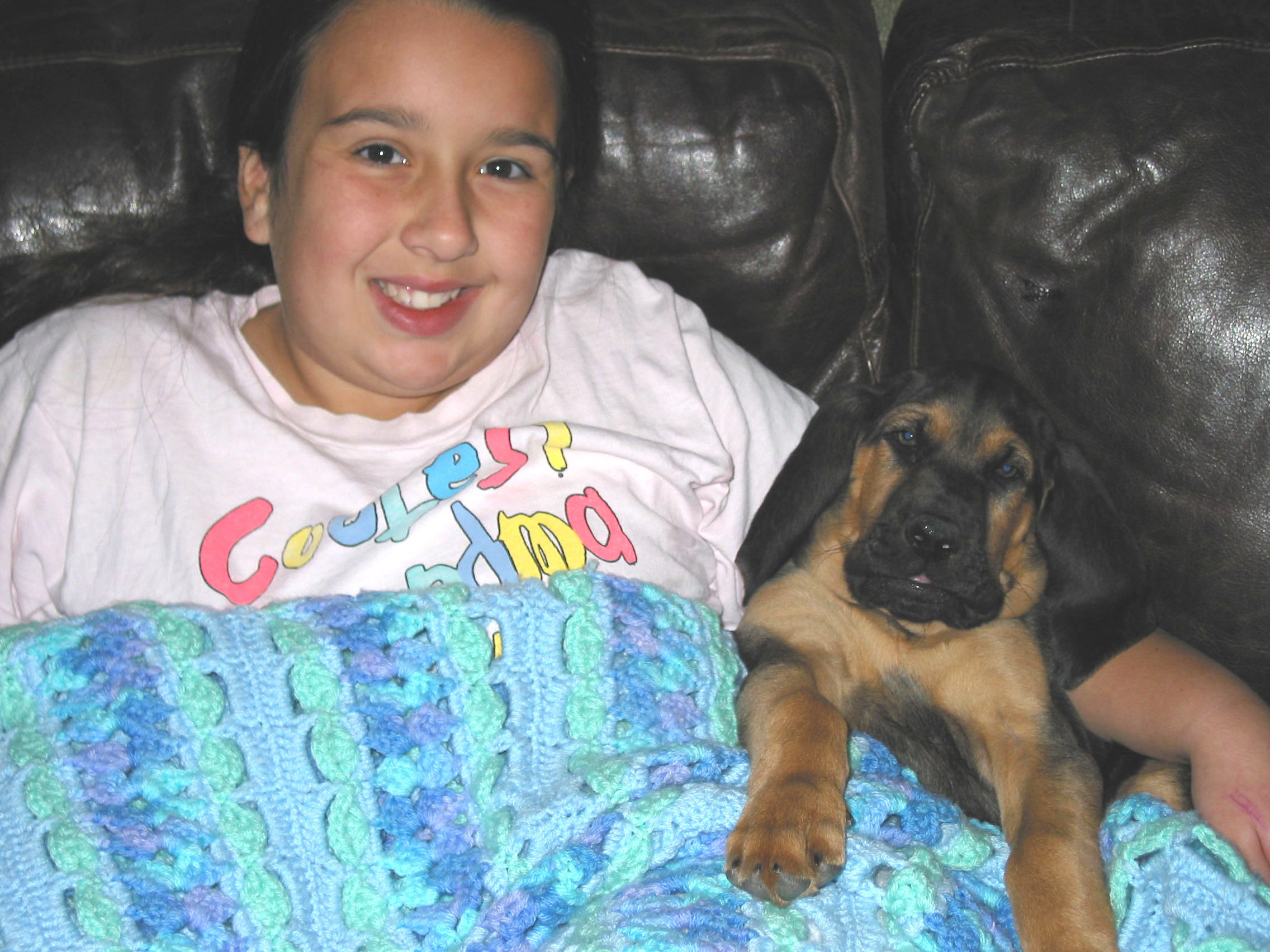
KIDS & DOGS:
All our bloodhounds love/adore kids. But we teach rules! Kids learn rules about pulling ears, bugging dogs, messing with food, etc. Dogs need rules about jumping on kids, nipping, and what items (toys) are for kids and not dogs.
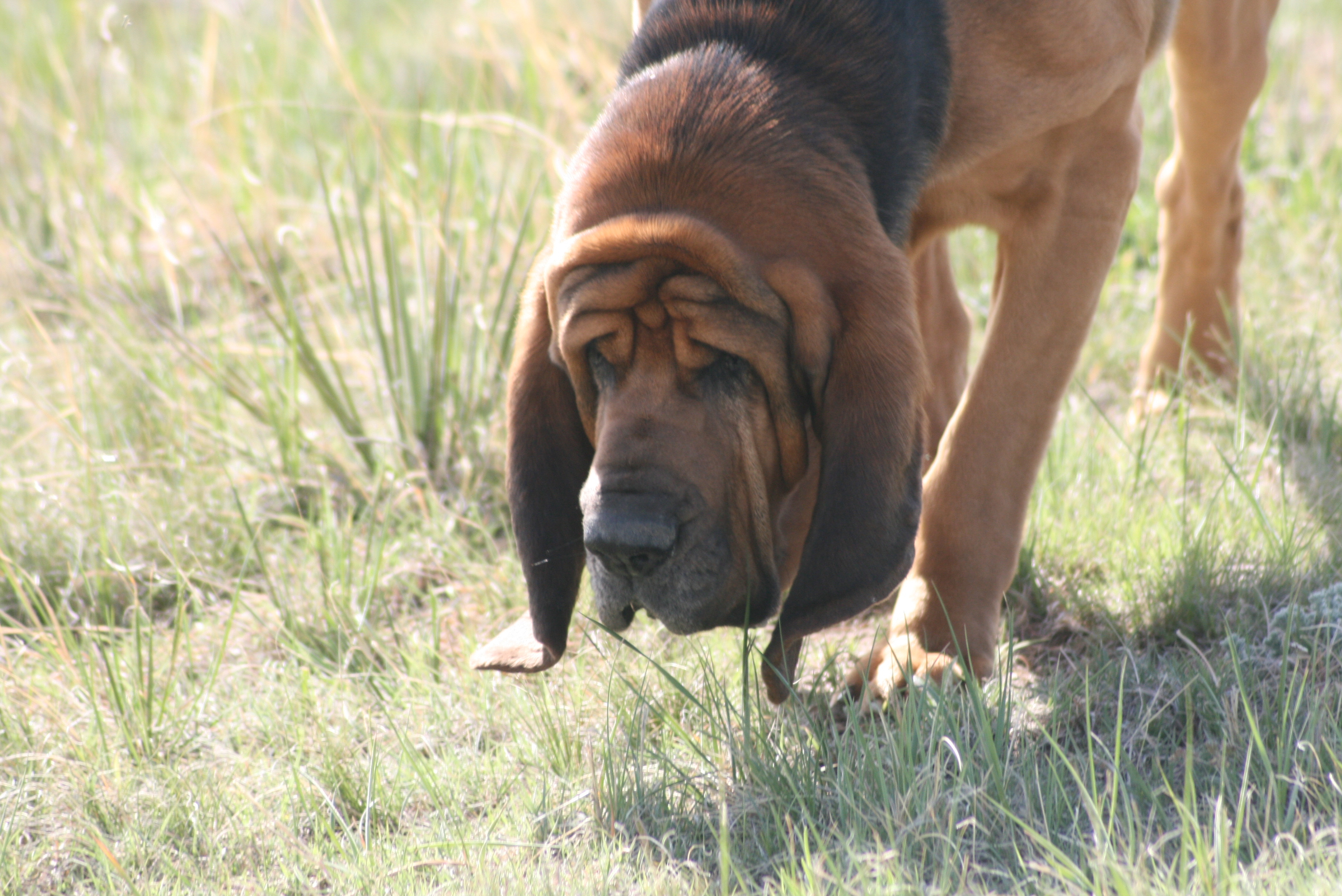
NOSEY & NOISEY:
Bloodhounds are "scent hounds", they sniff everything, but they are also "nosey" about what is going on. They make noise baying-rooing-singing). Many vocalize at cars or people passing by; it is generally a hello but can also be an alert.
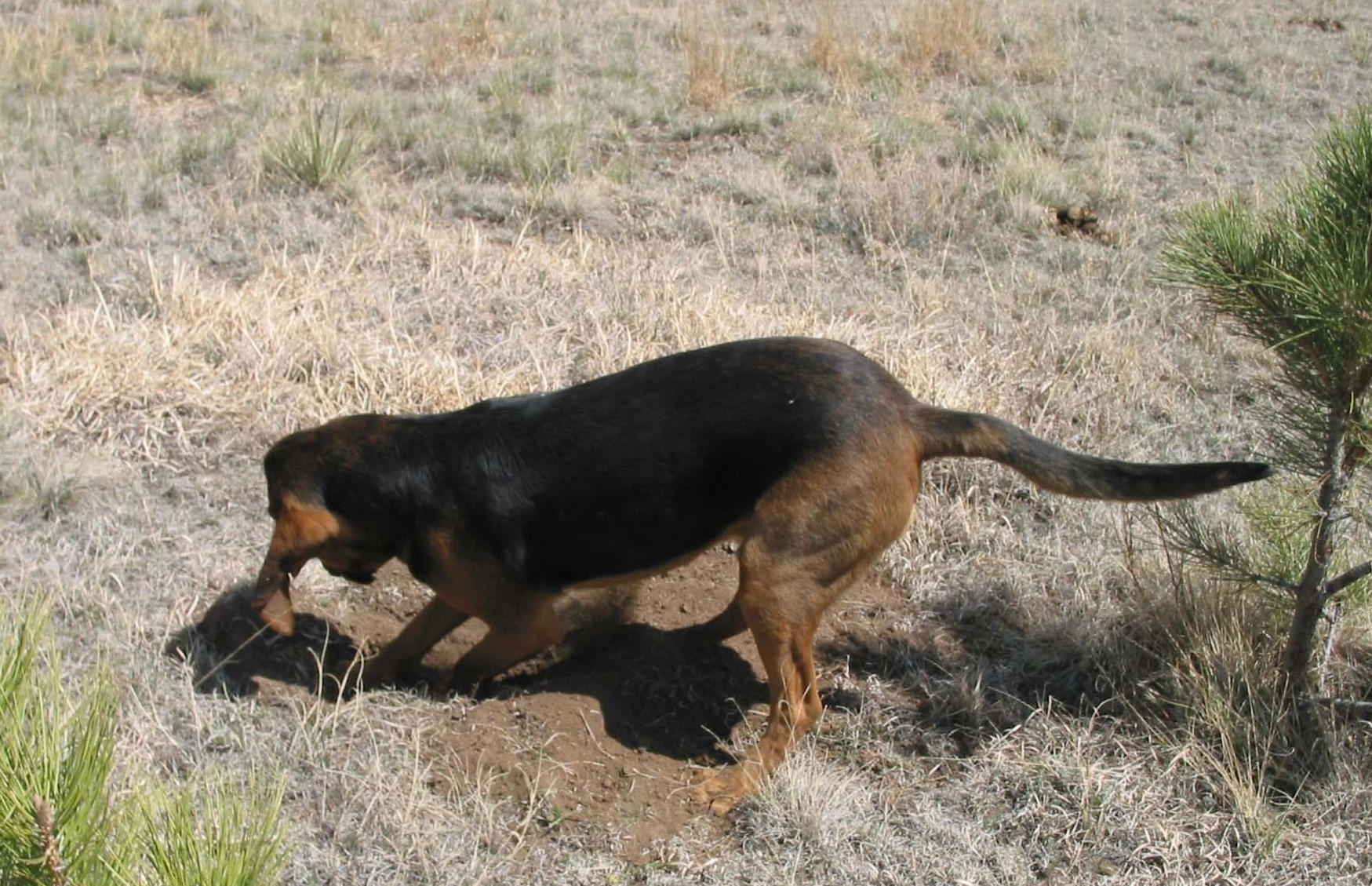
DIGGING & CHEWING:
Bloodhounds like to dig so your beautiful garden will change. They also like to chew - on sticks, toys, water bottles, gloves, shoes and anything they can get to (especially as a puppy). Best to get them heavy duty dog toys or bones/antlers.
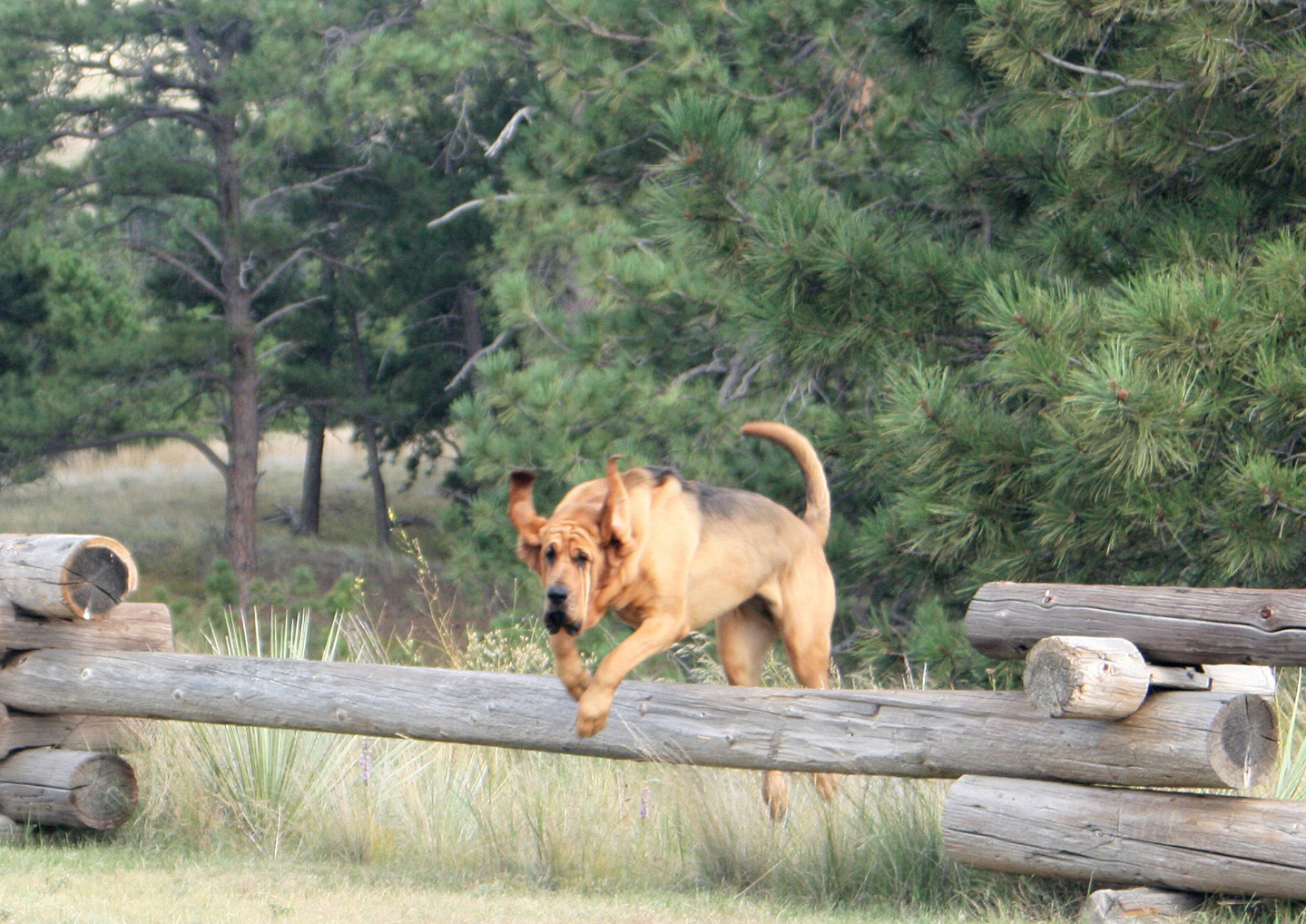
SMART but STUBBORN:
They are very smart dogs which can learn quickly and learn to play you. They can be very stubborn too - so your challenge is to try to make them want to do what they don't want to do. Repetition and Reward is the absolute key!
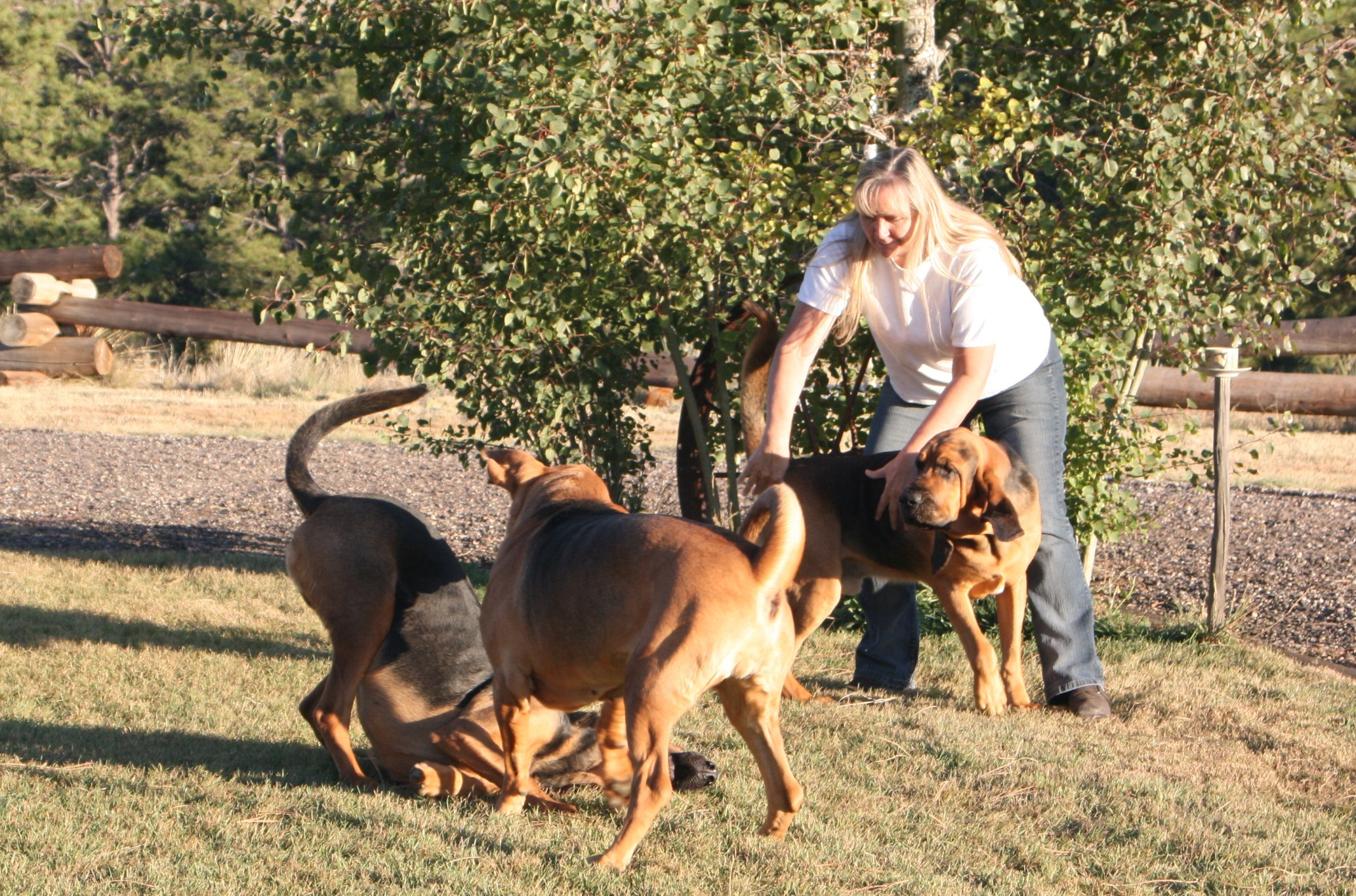
STRONG & PUSHY:
They are big dogs that are strong. They can easily knock down any kid but also adults. They are sort of pushy with their bodies too as they will body slam or jump on you if you let them. "No" is a must learn word, as is "Off".
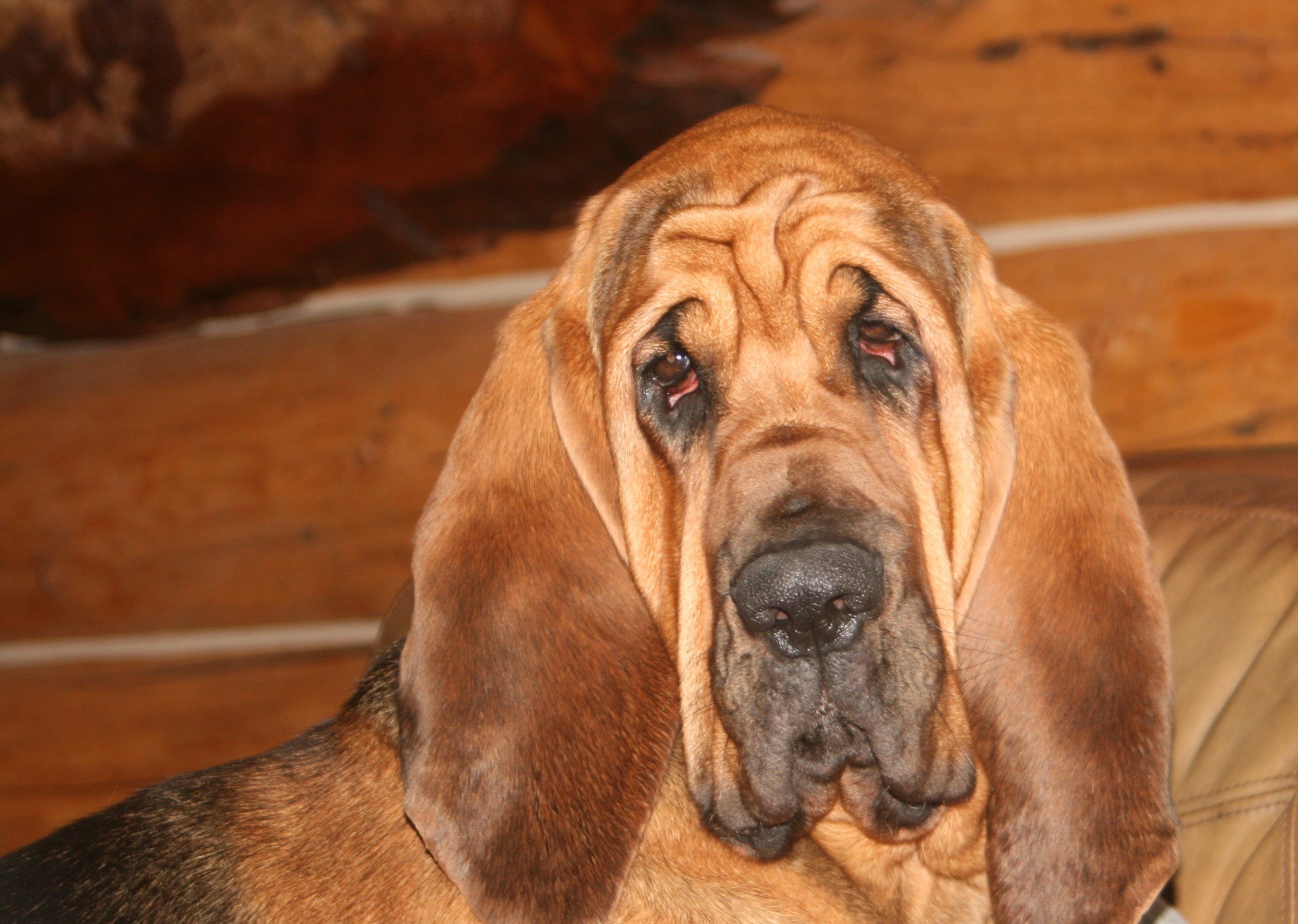
SENSITIVE & STRANGE:
Bloodhounds can be very sensitive to many smells (dead smells, chemicals, illnesses, animals, etc.) Each dog is different and may react uncomfortable or strange. You need to learn your bloodhound's unique sensitivities.
General Bloodhound Health Concerns
Bloodhound Lifespan
The average bloodhound lifespan is about 8 to 10 years (but many pass on sooner at 6 years and others live to 12 or more).
Overall Bloodhound Health Factors
There are many factors to a bloodhounds's overall health and even their lifespan:
- Inherited & generic issues
- Living environment & exercise
- Food nutrition & good overall care
- Access to regular and specialty vet care
Bloodhounds can be Sensitive to Anesthesia
This is partly due to their size/weight, and is that anesthesia is processed via muscles, and bloodhounds are heavy in bone and skin. It would be advised to visit with your vet about this before any surgery so they are aware.
Bloodhounds often get Dirty or Infected Ears
Each bloodhound is different, but please be aware that bloodhounds require regular cleaning and at times regular ear flushing. Some will get yeasty infected ears.
Bloodhounds are known to Eat Things (like Rocks)
Again each bloodhound is different, buy many bloodhounds love to chew and ingest things that cause them internal stomach obstructions that require surgery. It is something to watch for and to strive to prevent.
Top Bloodhound Health Concerns
# 1 - Bloat/Torsion - This is a problem for many large breed dogs (like great danes that recently found a genetic factor). We also feel stress is another factor in bloat. In some bloodhound lines dogs are passing extremely young and this is a concern to us. There is a surgical preventative measure of a gastropexy to secure (tack) the stomach so it can not flip and twist. Preventative surgery costs about $1,000 but a bloat/torsion emergency surgery will be more like $5,000 and your hound may not survive.
# 2 - Cancer - It is a problem for all dogs, where now the stats say 1 in 3 dogs will get some type of cancer. It really is sort of like humans - there are many factors, from food, environment, and in some cases genes. And cancer risks increases with age.
# 3 - Heart - They can have heart problems from mild to severe. You should require any breeder to have echocardiograms on any/all of their breeding males and females to ensure they are doing their best not to breed bloodhounds with heart issues.
# 4 - Eyes & Ears - Bloodhounds can have Entropic Eyes (eye lids rolling in to the extreme that they scratch the eye. They can also have Extropic (eye lids rolling outwardly) and this can create other troubles. Either extremes can require surgery to prevent long term sight troubles.
# 5 - Other - Bloodhounds can have lots of Allergies and Skin issues (this tends to line up with bloodlines with poor immune systems). They can have Joint problems, thyroid problems even eplipesy or DM degenerative myelopathy.
Responsible Bloodhound Breeders
A Responsible Bloodhound Breeder will make certain they should have the following Bloodhound Health Tests on both the sire and dam:
- OFA Heart Test (preferably an Echocardiogram)
- OFA Hip Test (hopefully Excellent or Good)
- OFA Elbow Test (should be Normal)
- OFA DM Test (will be Clear, Carrier or At Risk)
If a breeder does not have this info RUN AWAY!
Note OFA, the Orthopedic Foundation for Animals will issue certificates for tests and they should also be viewable on line on their website www.ofa.org.
 If you are looking for a bloodhound here are some Questions to ask any Bloodhound Breeder:
If you are looking for a bloodhound here are some Questions to ask any Bloodhound Breeder:
a - For health tests (listed above )on the sire
b - For health tests (listed above) on the dam
c - What is the average lifespan is for their dogs
d - Does their line of bloodhounds typically bloat
e - Does their line of bloodhounds have allergies
f - Does their line have immune issue troubles
g - What guarantees (if any) are offered
We think Bloodhounds are Wonderful Family Pets and they Enjoy doing Therapy Work and Public Education, can be Successful Show Dogs and are Amazing Working K9's!


